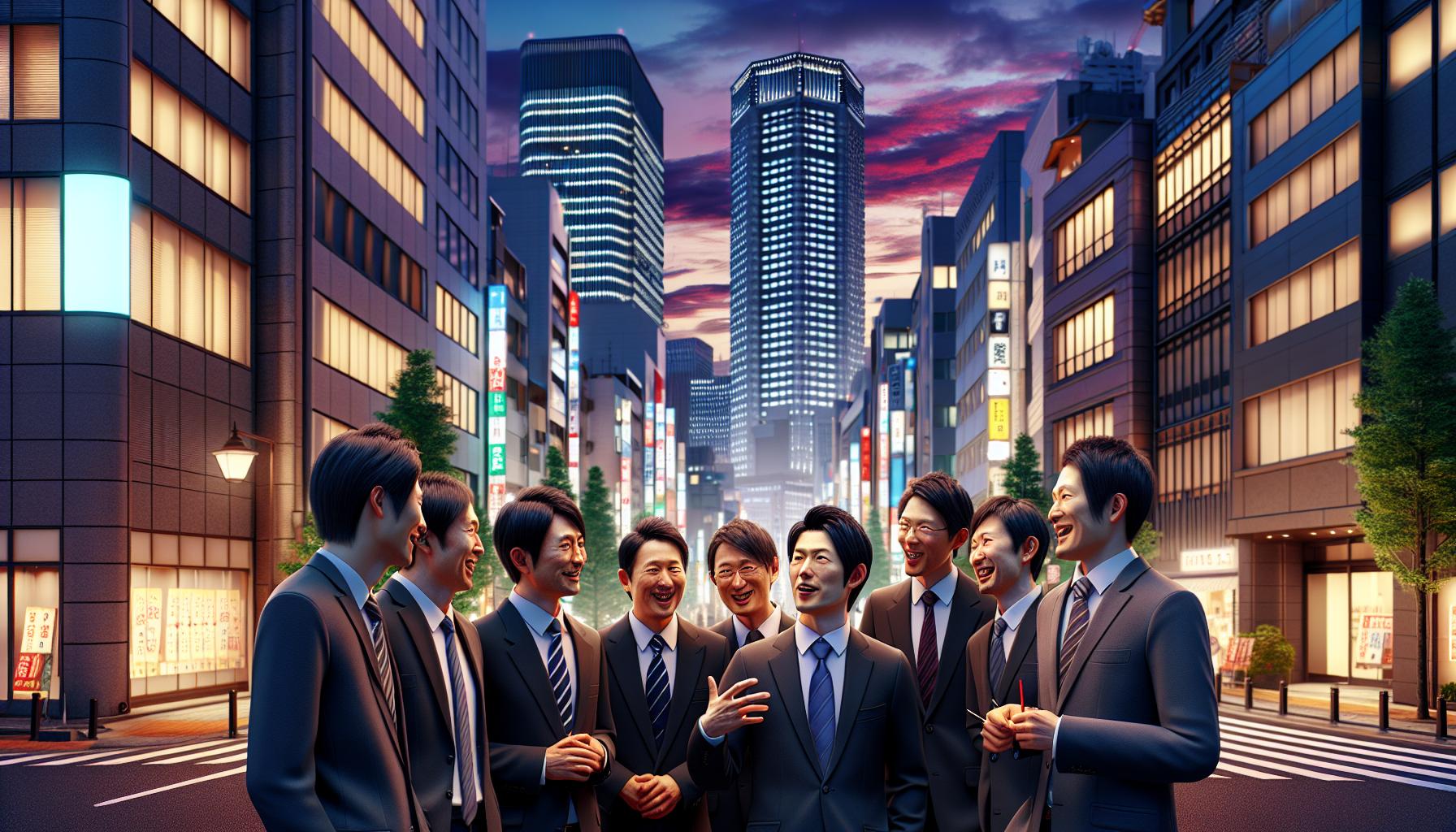In the land of the rising sun, where cherry blossoms bloom and sushi rolls reign supreme, the quest for work-life balance can feel like an elusive dream. Picture this: employees clocking in more hours than a samurai training for battle, yet yearning for a slice of personal time to enjoy karaoke or perfect their origami skills. Japan’s work culture, while steeped in dedication, often leaves little room for leisure, creating a paradox that’s both fascinating and frustrating.
But fear not! The winds of change are blowing through the corporate landscape. As more companies recognize the importance of employee well-being, innovative strategies are emerging to help workers reclaim their time. From flexible hours to remote work options, Japan is slowly but surely finding the sweet spot between productivity and personal fulfillment. Dive into this exploration of Japan Work Life Balance evolving work-life balance and discover how it’s transforming lives, one bento box at a time.
Japan Work Life Balance
Japan Work Life Balance often faces scrutiny due to prevalent long working hours. Many employees experience difficulty engaging in personal activities as work demands frequently overshadow leisure time. Cultural expectations strongly emphasize dedication to the job, leading to a perception that time off from work is indulgent or unnecessary.
Recent data indicates that the average Japanese employee works about 1,644 hours annually, which is substantially higher than the OECD average of 1,687 hours. The trend of overwork, known as “karoshi,” has brought attention to the need for balance in professional and personal spheres. Increased awareness around mental health has triggered discussions about employee well-being.
Initiatives are emerging within corporations that aim to address these challenges. Companies increasingly promote flexible working hours and remote work options. This shift fosters a healthier environment where employees can enjoy life outside of work, allowing them to pursue hobbies, spend time with family, and engage in self-care activities.
Government policies also reflect this changing landscape. Campaigns encouraging time off and limiting overtime hours are part of broader reforms designed to improve work conditions. Efforts like these demonstrate a recognition of the necessity for a better balance between professional demands and individual well-being.
As more organizations adopt these changes, a gradual transformation in workplace culture unfolds. Employees report feeling more valued and engaged, which can enhance overall productivity. The focus on creating a positive work life balance signals progress, with potential long-term benefits for both employees and businesses.
Historical Context

Japan Work Life Balance has deep roots shaped by dedication and discipline. Workers often prioritize commitment over personal lives, leading to extended hours at the office. Traditional concepts of loyalty and perseverance reflect in the behaviors of employees.
Traditional Working Culture
A unique feature of Japan’s working environment is the concept of “salaryman.” Employees dedicate their lives to their companies, often sacrificing personal time for commitment. Groups commonly eat and socialize after hours, reinforcing work-related connections. The average working hours, around 1,644 annually, exceed the OECD average, illustrating this cultural emphasis on labor. This approach places a high value on performance over personal well-being, creating a stark contrast with Western practices that often encourage leisure and balance.
Changes Over Time
Shifts began to emerge as public awareness increased regarding the negative impacts of overwork. Discussions around “karoshi” emphasized the need for reform, prompting both governmental and corporate responses. Initiatives like limiting overtime hours and encouraging vacations aim to improve the situation. Many organizations now embrace flexible working arrangements to foster better work-life balance. These transformations signal a positive change, though ongoing challenges persist within the traditional framework. Employees increasingly benefit from these evolving workplace policies, enhancing their overall well-being and satisfaction.
Current Challenges

Japan Work Life Balance faces several challenges in achieving work-life balance despite recent efforts. The emphasis on long working hours and societal expectations plays a significant role in this struggle.
Long Working Hours
Long hours characterize the Japanese work environment. On average, employees in Japan work approximately 1,644 hours per year, significantly exceeding the OECD average. Despite initiatives promoting flexible work, the culture of overwork continues to prevail, and many feel pressured to meet unwritten expectations. Many workers often endure late nights at the office, sacrificing essential personal time for work commitments. Such patterns contribute to mental health concerns, with symptoms of burnout becoming increasingly common. Cultivating a balance remains a complex task given the rigid expectations surrounding work hours.
Societal Expectations
Societal norms heavily influence work-life balance in Japan. Strong expectations exist for employees to demonstrate loyalty and dedication to their companies. Workers frequently engage in after-hours socializing, which reinforces these expectations but detracts from personal time. The salaryman paradigm underscores the tendency to prioritize work over individual needs, further complicating the quest for balance. As discussions around mental health gain traction, societal perceptions are gradually shifting. An increasing number of individuals advocate for the importance of personal well-being, but entrenched beliefs still challenge significant change. Recognizing and addressing these societal pressures is essential for fostering a healthier approach to work-life balance.
Strategies for Improvement

Improving work-life balance in Japan involves both government initiatives and corporate policies that prioritize employee well-being.
Government Initiatives
Government initiatives play a vital role in reshaping work-life balance. The Japanese government has launched campaigns encouraging employees to take time off and limit overtime hours. Recent reforms target aggressive work cultures that contribute to stress and burnout. As part of these efforts, authorities have implemented regulations that promote conscious adherence to work hours. The Ministry of Health, Labour and Welfare provides guidelines to ensure that workers receive adequate breaks, aiming to foster healthier workplaces. Public awareness about the harmful effects of overwork has also increased, encouraging society to rethink its approach to labor. These initiatives mark significant steps toward creating a more balanced work environment.
Corporate Policies
Corporate policies significantly influence employee work-life balance. Many companies now implement flexible working arrangements, allowing staff to adjust their schedules. Organizations recognize that remote work options can enhance job satisfaction. Employees appreciate the opportunity to balance personal commitments and professional responsibilities. Implementing policies that encourage taking leave and limit after-hours engagement fosters a culture of well-being. Some firms offer well-being programs, emphasizing mental health resources and self-care activities. These changes contribute to higher morale and productivity. Companies that prioritize employee needs often see improved retention and engagement. The shift toward valuing work-life balance within corporate policies reflects a growing understanding of its importance in modern work culture.
Success Stories
Recent improvements in Japan’s work-life balance reflect a growing recognition of employee well-being. Several companies are pioneering initiatives that prioritize mental health and personal time.
Companies Leading the Change
Fujitsu has implemented flexible working hours, allowing employees to choose schedules that suit their personal lives. Panasonic embraced remote work policies, fostering a healthier balance between professional and personal commitments. Moreover, Uniqlo introduced a program encouraging employees to take mandatory vacations. Companies like these demonstrate a commitment to shifting traditional workplace norms, paving the way for more sustainable work cultures. As organizations adopt these changes, employee satisfaction and engagement levels increase, creating positive outcomes for both individuals and the companies.
Employee Testimonials
Employees generally appreciate the evolving work culture. One worker at Fujitsu expressed gratitude for the ability to balance family responsibilities with work. Another employee from Panasonic shared how remote work options resulted in improved mental health, allowing for better focus on personal projects. Uniqlo’s mandatory vacation policy has significantly enhanced morale among staff, creating a more positive atmosphere. The positive feedback from these employees underscores the effectiveness of the initiatives, contributing to enhanced productivity and happiness in the workplace.
Japan Work Life Balance journey toward a healthier work-life balance is ongoing. While traditional values have long emphasized dedication and long hours, there’s a noticeable shift in corporate culture. Companies are beginning to recognize the importance of employee well-being and are implementing flexible work arrangements that allow for personal time.
This transformation is essential not just for individual health but also for overall productivity. As more organizations adopt these progressive policies, employees are finding greater satisfaction in their personal and professional lives. The road ahead may still present challenges, but the growing awareness of the need for balance signals a promising future for Japan’s workforce.

